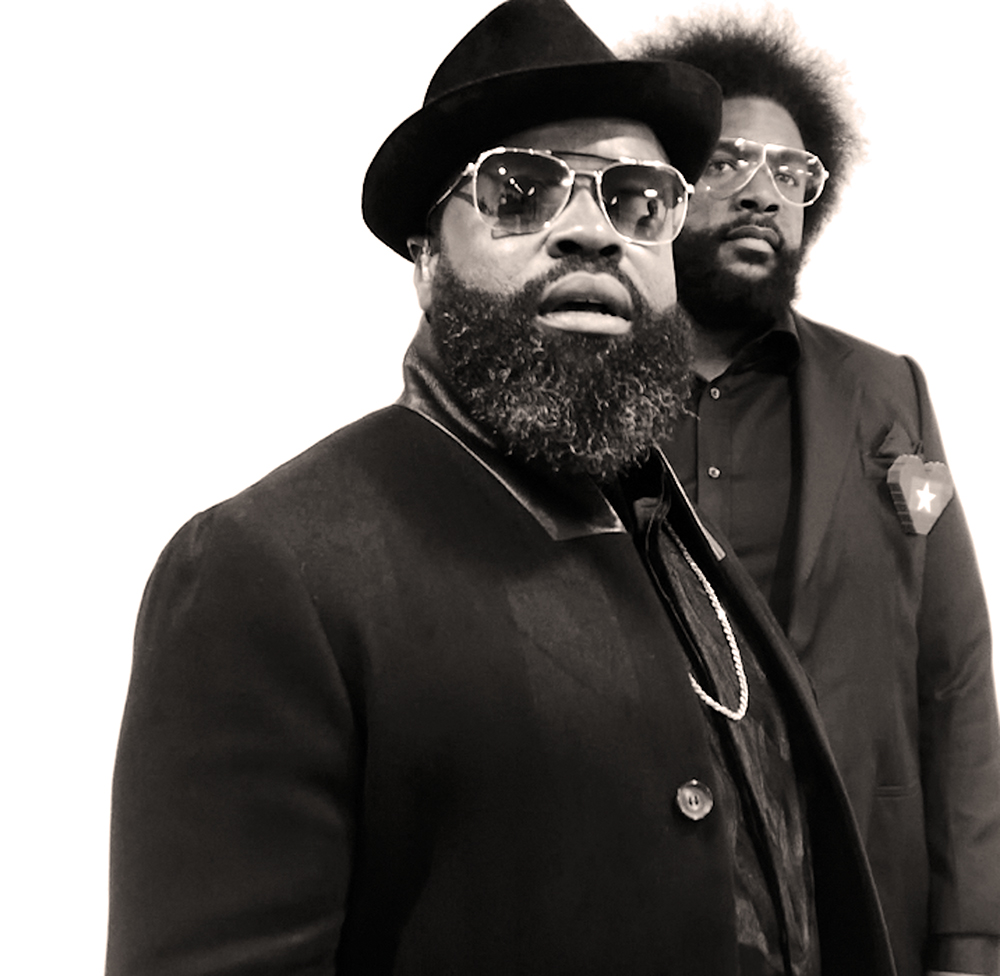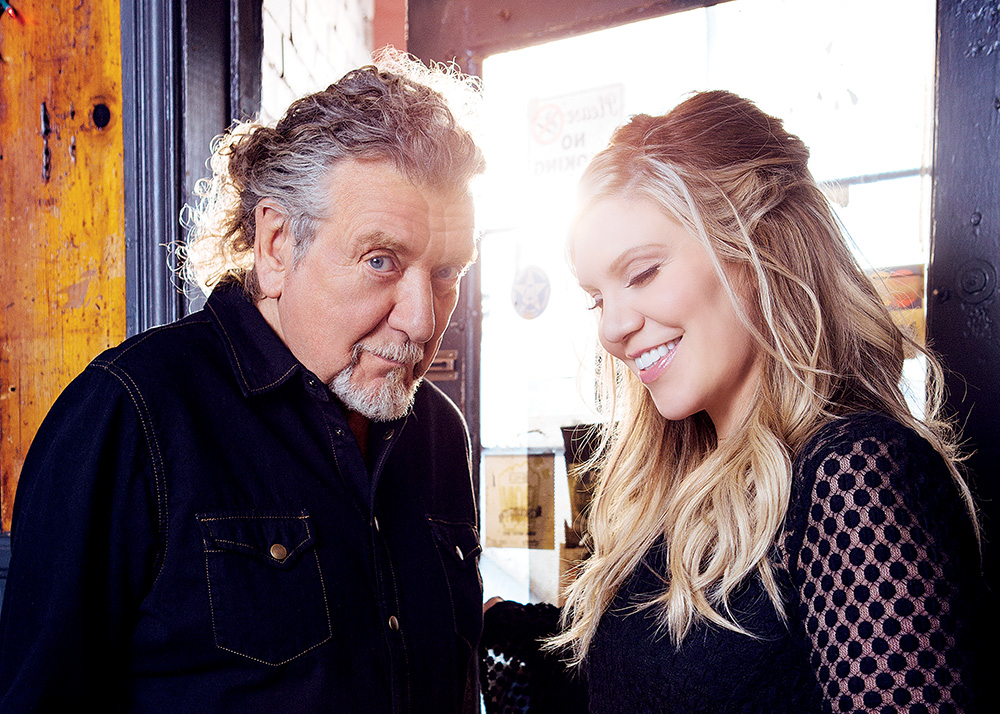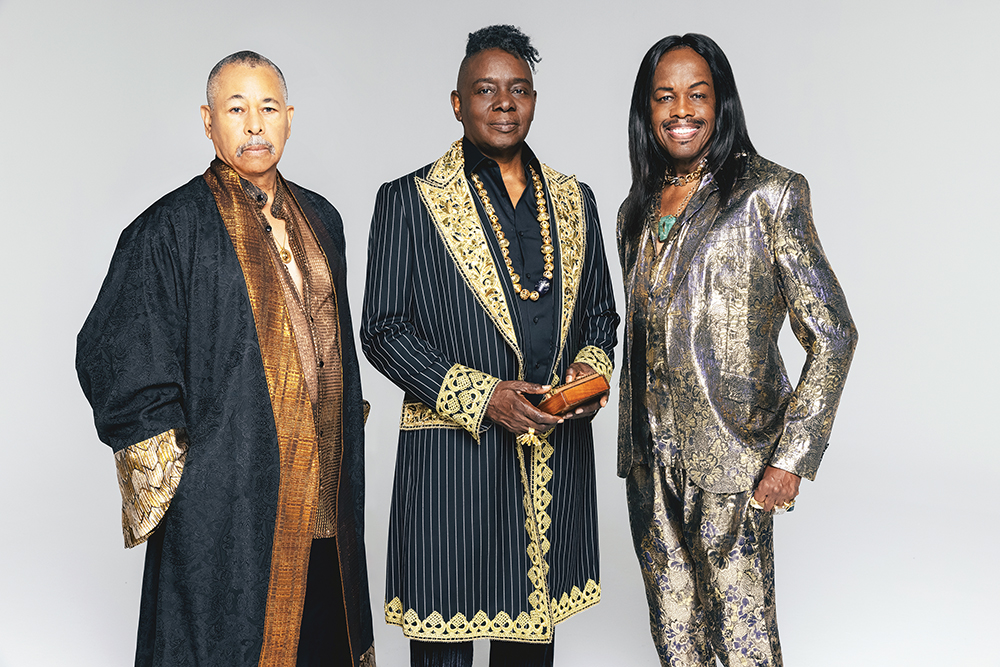Last year, it struck many as odd that the great Memphis in May tradition of celebrating the best music of our time by the banks of the Mississippi had suddenly been uprooted. Everyone presumably understood the reasoning, with Tom Lee Park still being reconstructed at the time, yet having the festival relocated in its 45th year induced a kind of transplant shock in some. Now, this May 5th through 7th, none of that applies, as the Beale Street Music Festival once again roots down by the river. In fact, having begun in 1977 at the corner of Beale and Third, it’s closer to its roots than ever. Let 2023 be known as the year the festival returned to Beale Street.
That’s because, while the main festival stages will be spread across Tom Lee Park as in the past, what was formerly known as the “Blues Tent” will now be the Memphis Tourism “Blues Stage on Beale.” Best of all, this area of the festival is free. As Kevin Kane, president & CEO of Memphis Tourism, noted in a statement, “The blues will be exactly where they were born during Memphis in May, at Handy Park on Beale Street. This extends the entertainment footprint of the Beale Street Music Festival beyond Tom Lee Park, making great use of a public venue and stage, free and open to all.”
For any music lovers who’ve struggled to hear some wistful Delta bottleneck guitar over the pounding kick drum of a headliner on the main stage, this is a positive boon. And not only will the blues get the proper respect of plenteous peace and quiet, the festival’s programmers have invested in the Blues Stage lineup in a big way. Headliners Los Lobos, Keb’ Mo’, and the North Mississippi Allstars will be complemented by the likes of Cedric Burnside, Blind Mississippi Morris, the Ghost Town Blues Band, Mr. Sipp, the Reba Russell Band, and more.
Beyond Beale, this year’s festival is rooting down in another, subtler sense. It’s not in the usual sense of tipping its hat to local artists, though with everyone from hometown hip-hop queen GloRilla to The Bar-Kays, Jason D. Williams, Dirty Streets, Tyke T, Sleep Theory, The Sensational Barnes Brothers, and Mille Manny appearing, that cohort is well-represented. It’s more in the unseen threads of Memphis influence that run through the work of three of the festival’s headliners in particular: Earth, Wind & Fire; The Roots; and Robert Plant & Alison Krauss. Though it’s hard to say how that influence will manifest during their respective sets, the invisible strings tying these artists to Memphis are powerful and profound. As you watch, listen, and dance to the music, be on the lookout for those connections to reveal themselves.
☮
Earth, Wind & Fire
The threads binding Earth, Wind & Fire to Memphis are the most obvious of the bunch, for this is where group founder Maurice White grew up. In his memoir, Time is Tight: My Life, Note by Note, Booker T. Jones takes us back to that time: “I was a sixth-grader practicing in the band room one day when Maurice, an eighth-grader, walked in and said, ‘Hello, I’m Maurice White.’ We discovered we lived not far away from one another and started hanging out at his small LeMoyne Gardens apartment or in the den at my house, usually listening to music.”
Both were destined to become legendary musicians, and they wasted no time in getting started. “Maurice was the first person of my age group I’d met who was really committed to making music and had the skill to become a virtuoso,” Jones writes. “We ended up playing live or practicing together nearly every day for what seemed like years. He was usually on drums, and I was on piano or some other instrument. As a result, we became like soul brothers, neither of us having a natural brother our own age.” The day White left for Chicago was burned into Jones’ memory. “It was 1961, an early introduction to emptiness.”
Of course, Jones’ loss was the world’s gain, as White began to thrive in the Chicago music scene, working for the Ramsey Lewis Trio and playing on sessions for Chess Records. Eventually, he enlisted his half-brother Verdine White on bass for his new 10-piece band. As he later wrote in his autobiography, “Earth, Wind & Fire would have never become Earth, Wind & Fire without Verdine. A huge part of what built EWF was our live shows. Verdine, the ultimate Leo, had the energy to sustain us.”
The band, of course, had enough mega-hits in the ’70s to release The Best of Earth, Wind & Fire, Vol. 1 in 1978, while the compilation’s new single, “September,” became one of their biggest hits ever, propelling the album into quintuple-platinum sales. Moreover, the staying power of the band’s golden-era tracks has been undeniable; in 2018, “September” was added to the Library of Congress’ National Recording Registry as a “culturally, historically, or aesthetically important” work.
While White seemingly never identified with Memphis much after leaving (excepting the band’s one release on Stax), those years of hits made their impact right here in the Bluff City. That’s especially clear in the recent work of a self-confessed superfan and Memphis native, historian Trenton Bailey. His book Do You Remember? Celebrating Fifty Years of Earth, Wind & Fire (Univ. Press of Mississippi), just published this year, is a formidable compendium of the band’s every move. Reading it helps shed light on how the band can carry on despite White’s death in 2016.
As it turns out, the group has been touring without him for 30 years, for tragic reasons. Even as early as the late 1980s, White was dealing with the sporadic effects of Parkinson’s disease. By 1993, shortly after a galvanizing performance on The Arsenio Hall Show, he announced that he was retiring from touring. Before long, his longtime partner and co-singer in the band, Philip Bailey, along with brother Verdine, secured the rights to tour under the band name without White. As the disease inexorably took its toll on White’s health, the band carried on White’s legacy. To this day, Verdine still holds down the bass and Bailey still fronts the band, making for live sets that continue to stun.
♥
The Roots
Though it may not be obvious now that The Roots seemingly appear everywhere as the house band for The Tonight Show Starring Jimmy Fallon, their ties to Memphis run deep, mainly thanks to the same man who was Maurice White’s childhood friend: Booker T. Jones. As Roots co-producer, keyboardist, and arranger Ray Angry puts it, “I did some shows with Booker T. and The Roots. He’s awesome!” And clearly it made an impression on the former head of the M.G.’s as well.
As Jones writes in his memoir, “Jimmy Fallon’s a great music supporter and a great guy. I just had to have his drummer is all.” That would be Ahmir “Questlove” Thompson, of course, who, like Angry, has distinguished himself independent of The Roots, but continues to thrive on playing with the band. Not only was he a co-producer with Jones on The Road from Memphis, Jones’ Grammy-winning album from 2011, he supplied all the beats while his then-bandmates Owen Biddle and Kirk Douglas laid down the bass and guitar, respectively. “Questlove’s steady drumming is inimitable and unmistakable,” writes Jones, and the proof is in the pudding of that masterpiece of an album.

That steady drumming jumped out from The Roots’ major label debut, Do You Want More?!!!??!, in 1995, and still forms the backbone of the group today, while Tariq Trotter, aka Black Thought, continues to make the rhymes flow. From the start, they brought a jazz sensibility to hip-hop, first and foremost because they were a group of real players, making the music in real time, rather than relying on samples. Even as they embraced sampling more deeply, as in 2004’s The Tipping Point, that commitment to live playing has been a through line in the band’s long history.
Even as long ago as 2008, joining the group was a dream come true for Ray Angry. They were already legends. “One of the first sessions I did, with Joss Stone, was a gig I got through The Roots’ manager,” Angry recalls. “I was a classical pianist playing jazz, with so many different musical styles under my belt, and during this time The Roots were playing with people like Sting and George Clinton. Eventually I started co-producing songs, starting with the album How I Got Over. So on every Roots record from that point on, I was a producer, arranging strings and writing interludes. And one interlude I wrote, ‘A Peace of Light,’ Kendrick Lamar ended up sampling. So working with The Roots is pretty cool!”
Angry, best known for his 2021 single “Toyland” and with a solo piano album coming out in June, embodies the same eclecticism as The Roots generally, and he often augments his group work with individual Roots cameos. “I did just do a trio record with myself, Questlove, and David Murray. I’m really excited about that. I also work on film stuff with Questlove, and one year he and I did the music for the Oscars.” Meanwhile, he’s a secret weapon of sorts for the band’s residency on national network television. “When I first worked with them on The Tonight Show, they would have me write a bunch of cues; they call them sandwiches, because they’re short bits of music for commercial breaks.”
And speaking of sandwiches, Angry treasures his encounter with one Memphis barbecue expert in particular. “I worked on a record with Joss Stone that included Memphis legend Steve Cropper. He was telling me about his barbecue restaurant. People are really serious about their barbecue in Memphis!”
And The Roots are really serious about Memphis. Is it too much to hope for a reprise of their scintillating cover of Booker T. & the M.G.’s “Melting Pot”? Show up Saturday and find out.
🤘
Robert Plant & Alison Krauss
While bluegrass star Alison Krauss is typically associated with Nashville, it’s her erstwhile collaborator, Robert Plant, who really embodies the invisible strings of Memphis. Naturally, with his supergroup Led Zeppelin having emerged from the British blues revival of the ’60s, he’s steeped in the music and lore of the Bluff City and Mississippi. That’s apparent in a story told on the band’s official online forum by former Atlantic Records promotional man Phillip Rauls about when Led Zeppelin’s tour came to Memphis in November of 1969.
“The lobby of the Holiday Inn was clearing as a parade of newscasters and camera crews packed up their equipment,” Rauls writes, “after the presentation ceremony awarding Led Zeppelin The Key to The City of Memphis. Standing at the elevator and waiting for a lift was Jimmy Page and Robert Plant when I casually approached the twosome.” And what did the celebrity rockers want most out of a visit to the Bluff City? “A few seconds passed when [Page] turned back to me and timidly asked, ‘Do you know anything about Sun Recording Studio?’”

The group’s ties to the city were even more pronounced a year later, when Page settled on Ardent Studios as the place to complete overdubs and mixes for the album Led Zeppelin III. But Plant’s connection to the city went beyond musical obsessions or work. It was personal, as was revealed last year when Priscilla Presley was inducted into the Memphis Music Hall of Fame. Who should appear to present the award to her but Plant himself, who called her “a lifelong friend.”
He used the opportunity to wax enthusiastic about the music of our region. “I’m British, and we have a fascination with the music of this specific city and its environs and farther down in the Mississippi Delta. … Here in Memphis, excitement and unparalleled expression rose above the constraints and the infamy of the times. Here in Memphis, the sounds of Clarksdale, Jackson, Tunica, and the Delta collided with unholy abandon, with the hillbilly two-step. Here in Memphis, where trailblazing Blacks and whites worked under cover of night at Sam Phillips to forge the beat that created a new world of music.”
As he wrapped up his introduction, Plant emphasized his personal connection to the place. “Like so many people from all walks of life, tonight I feel like a part of one big extended family. We’re bound together by the energy of the beat from long ago that was driven with stunning conviction and abandon by the man that you, Priscilla, knew so well.” And, for just a moment, as he looked out at the Memphis audience warmly that night, you could see those invisible strings plain as day.
Beale Street Music Festival Schedule 2023
Friday, May 5, 2023
Gates at 5 p.m.
Zyn Stage
Marcy Playground 6:15
Toadies 7:45
Live 9:20
311 11:00
Bud Light Stage
The Sensational Barnes Brothers 6:10
The Bar-Kays 7:40
Earth, Wind & Fire 9:15
Ziggy Marley 11:15
Volkswagen Stage
Low Cut Connie 6:00
PJ Morton 7:25
The Lumineers 9:00
Memphis Tourism Blues Stage on Beale
Azmyl & the Truly Asia 4:30
Blind Mississippi Morris 6:00
Ana Popovic 7:35
Keb’ Mo’ 9:15
Ghost Town Blues Band 11:00
Saturday, May 6, 2023
Gates at 1 p.m.
Zyn Stage
Myron Elkins 2:25
Jason D. Williams 3:55
Gov’t Mule 5:30
Mike. 7:10
Halestorm 8:40
Hardy 10:20
Bud Light Stage
Tyke T 2:00
Phony PPL 3:20
Big Boogie 4:50
Cameo 6:00
Finesse2Tymes 7:30
GloRilla 8:45
The Roots 10:00
Volkswagen Stage
Sleep Theory 2:45
Mac Saturn 4:15
Living Colour 5:50
White Reaper 7:30
The Struts 9:10
Greta Van Fleet 10:45
Memphis Tourism Blues Stage on Beale
Mark Muleman Massey 1:30
Will Tucker Band 3:00
Azmyl & the Truly Asia 4:35
Mr. Sipp 6:15
Cedric Burnside 8:00
Bernard Allison 9:45
North Mississippi Allstars 11:30
Sunday, May 7, 2023
Gates at 1 p.m.
Zyn Stage
Beach Weather 2:20
Moon Taxi 3:55
Andy Grammer 5:30
Young the Giant 7:00
AJR 8:40
Bud Light Stage
Mille Manny 2:15
Eric Benet 3:45
Yola 5:15
Dru Hill 6:45
Jazmine Sullivan 8:25
Volkswagen Stage
Dirty Streets 2:15
Shovels & Rope 3:45
Lucinda Williams 5:20
Gary Clark Jr. 7:00
Robert Plant & Alison Krauss 8:40
Memphis Tourism Blues Stage on Beale
Ollie Moore 1:30
Reba Russell Band 3:00
Selwyn Birchwood 4:35
Colin James 6:15
Los Lobos 8:00
Rod Bland Members Only Band 10:00
